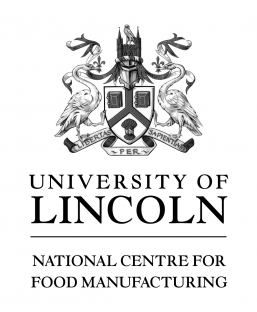The Course
The BSc (Hons) Agri-Produce and Supply Chain Management has been developed in order to best prepare students for managing multi-disciplined teams in today’s fast-paced food manufacturing environments. Students are introduced to both the theoretical and practical aspects of management within food manufacturing sector including planning, logistics, technical support and resource management.
The course aims to provide students with the necessary technical knowledge in order to support the safe production of food within their roles. The programme also aims to equip students with the essential practical and professional transferable skills to enable them to reach their potential within the food sector as well as academic, industrial, commercial, government and environmental settings. The course places considerable emphasis on enhancing intellectual, critical analysis, problem solving, project and time management, report writing, teamwork, ethics, health and safety, intellectual property, information technology and career management.
This course can be studied at Foundation (FdSc) or Bachelor’s (BSc) level. Both courses are offered on a part-time basis and are run predominantly through distance learning.
How You Study
Our programmes are a combination of on-the-job learning and part-time study at the National Centre for Food Manufacturing, with delivery consisting of attended learning through block release and distance learning study. The courses aim to provide comprehensive work-based training schemes for people wishing to develop their career in the food manufacturing industry, complemented by ‘off the job’ learning to develop the supervisors, managers and technologists of the future.
Higher and Degree Apprenticeships offer high quality workplace training complemented by part-time, flexible degree level study. NCFM’s Degree Apprenticeships (Level 6) are 4 years in duration and embed a BSc (Hons) degree, whilst Higher Apprenticeships (Level 5) are 2.7 years and embed a Science Foundation Degree. These are often used to aid progression into the Degree Apprenticeship. As well as completing the relevant degree, apprentices must attain (or already hold) Functional Skills in maths and English at Level 2 and successfully complete the independent Apprenticeship Endpoint assessment at the end of their Apprenticeship. NCFM’s degrees are delivered through a blend of distance learning and block release attendance with apprentices normally attending the campus for 3 week blocks of 1 week duration a year.
Modules
LEVEL 1:
Level 2:
Level 3:
Our Team
Apprentices are supported by a qualified team, with years of food industry experience between them who have the welfare and success of our apprentices at the heart of everything we do. Whether you are a sector professional returning to education after a number of years or you have recently left education and are newly embarked on a food industry career - you are in safe hands.
Entry requirements 2019-20
GCE Advanced Levels: CCC
A foundation degree, BTEC Diploma/Extended Diploma with Merit, Merit, Merit, Advanced Apprenticeship in Food Manufacturing or a related subject with be considered Vocational and Professional qualifications will also be considered.
Ideally, candidates will have been employed in a managerial or supervisory role in the food manufacture or related industry.
In addition, applicants must have at least 2 GCSEs in Maths and English at grade C or above. Equivalents are accepted for example Functional Skills Level 2 or IELTS.
LEARN FROM EXPERTS
Throughout this degree, students may receive tuition from professors, senior lecturers, lecturers, researchers, practitioners, visiting experts or technicians, and they may also be supported in their learning by other students.
Career Opportunities
The University of Lincoln aims to provide apprentices with a sought-after combination of industry experience, technical knowledge and skills to prepare them for a range of career opportunities which will be dependent upon the chosen Higher or Degree Apprenticeship pathway. Students who choose Food Science and Technology can develop the skills and knowledge needed to be a leader in technical and quality management or in new product and process development. Food Engineering students have the opportunity to develop the technical knowledge needed for a successful career in a sector which is highly automated. Food Manufacturing Management apprentices can specialise for an operations management role spanning a range of areas, including factory or supply chain management.
FACILITIES
The National Centre for Food Manufacturing (NCFM) is based in Holbeach, in south Lincolnshire. This food manufacturing technology hub provides specialist facilities and industry-standard equipment, including analytical laboratories with a test kitchen and sensory testing suite, a technician training centre and processing facilities.
At Lincoln, we constantly invest in our campus as we aim to provide the best learning environment for our undergraduates. Whatever the area of study, the University strives to ensure students have access to specialist equipment and resources, to develop the skills, which they may need in their future career.
How to Apply
Applications are usually made directly through an employer's website. There are a number of useful sites which can help with finding apprenticeship opportunities:
GOV.UK Appenticeship Search
UCAS Careers Apprenticeship Search
National Centre for Food Manufacturing


 cy
cy




